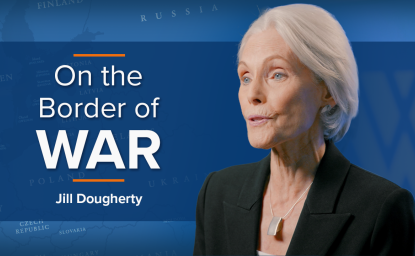China's New Leadership Under Hu: Two Years After
Two years into the Administration of Hu Jintao, policy differences are evident between him and his predecessor, Jiang Zemin. But both leaders made relations with the United States a priority.
Two years into the Administration of Hu Jintao, policy differences are evident between him and his predecessor, Jiang Zemin. But both leaders made relations with the United States a priority.
Two years after becoming China's new leader in November 2002, Hu Jintao appears to be making moderate policy adjustments. His main domestic concerns include the growing income gap and uneven developments among regions. In two decades, China's income gap has widened considerably. In the early 1980s, women working in state-owned enterprises earned as much as men. Now, however, women earn about 70 percent of men's salaries. In 1980, urban workers earned nearly twice as much as those living in the countryside. In 2000, urban workers earned almost triple the wages of those in the countryside.
In foreign policy, Hu has emphasized security issues more than his predecessor Jiang Zemin, who tended to focus on economics, especially in the early part of his reign. Jiang's emphasis on economics largely resulted from the easing of an imminent foreign threat after 1989, symbolized by Mikhail Gorbachev's historic visit to China, and the collapse of the Soviet Union in 1991, which the Jiang regime perceived was caused by the Soviet leader's political reform.
The previous lack of emphasis on security issues, which started before Jiang took office, was demonstrated from 1978-97 when China, as a permanent member of the United Nations Security Council, exercised veto power only once. However, the recent tension across the Taiwan Strait and China's growing power in the last two decades may have contributed to Hu's shift in policy preferences. Hu also seems to stress multilateral relations more than Jiang, who emphasizes China's bilateral relations with the United States.
However, both Jiang and Hu place the United States at the top of their agenda. This moderate switch may have resulted from the perceived U.S. unilateralism after the 9/11 terrorist attack.
On Taiwan, there seems to be more continuity between Jiang and Hu. Reunifying with Taiwan does not seem to be a top priority for the new leadership. This continuity occurs against the background of Beijing's long-term Taiwan policy posture which has gone through three stages in the last half-century: (1) to liberate Taiwan by force (1949-1979); (2) to reunify with Taiwan, mainly through political means (1979-1995); and (3) to prevent Taiwan from becoming independent, using force if necessary (1995-present). While the 1979 transition was generated by Deng Xiaoping's reforms, the 1995 transition was generated by a combination of international forces and the dynamics on both sides of the Taiwan Strait.


